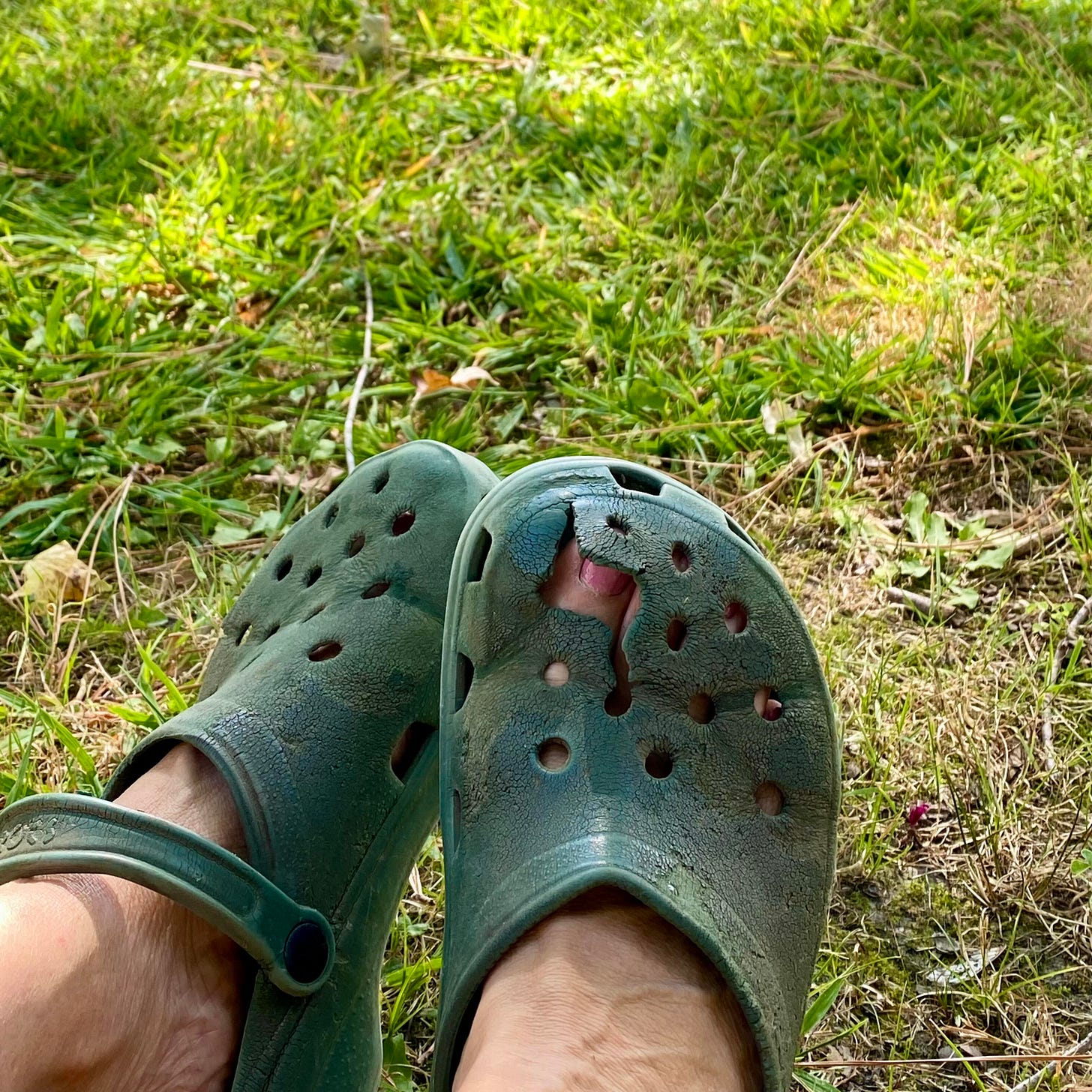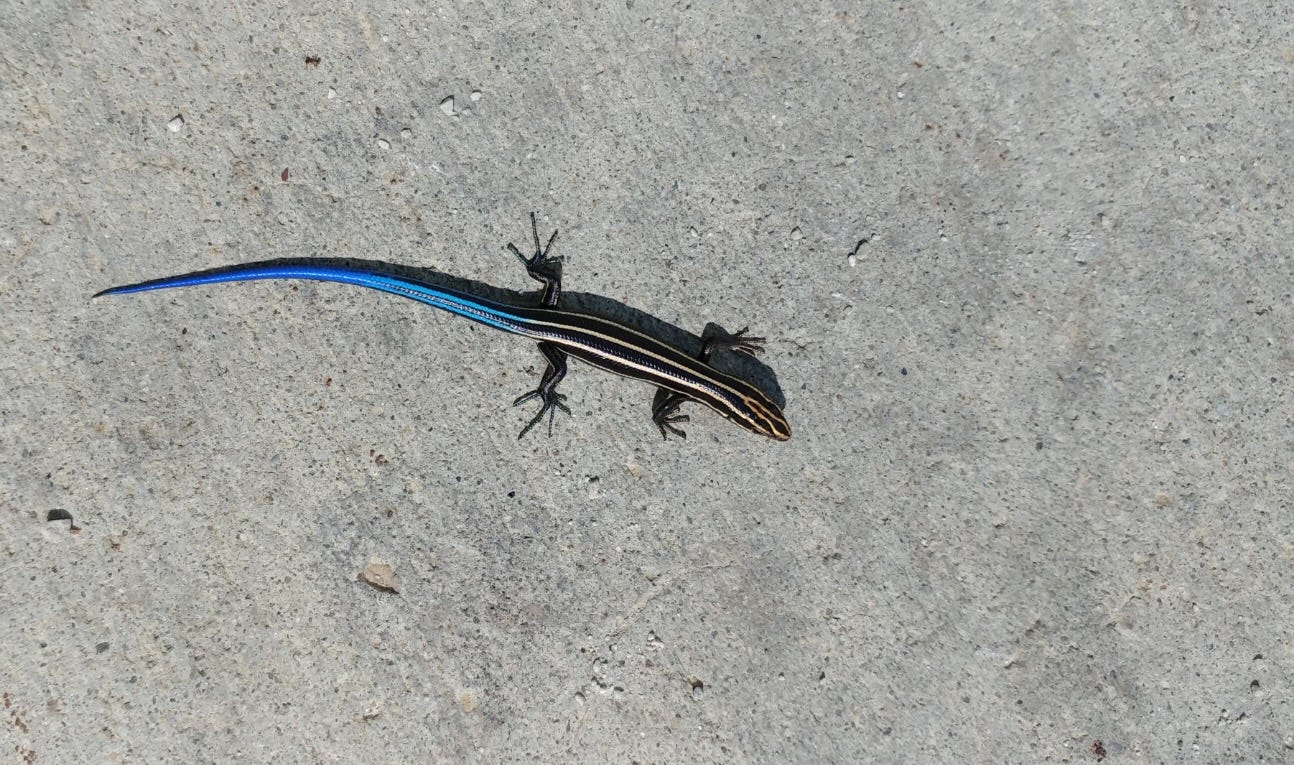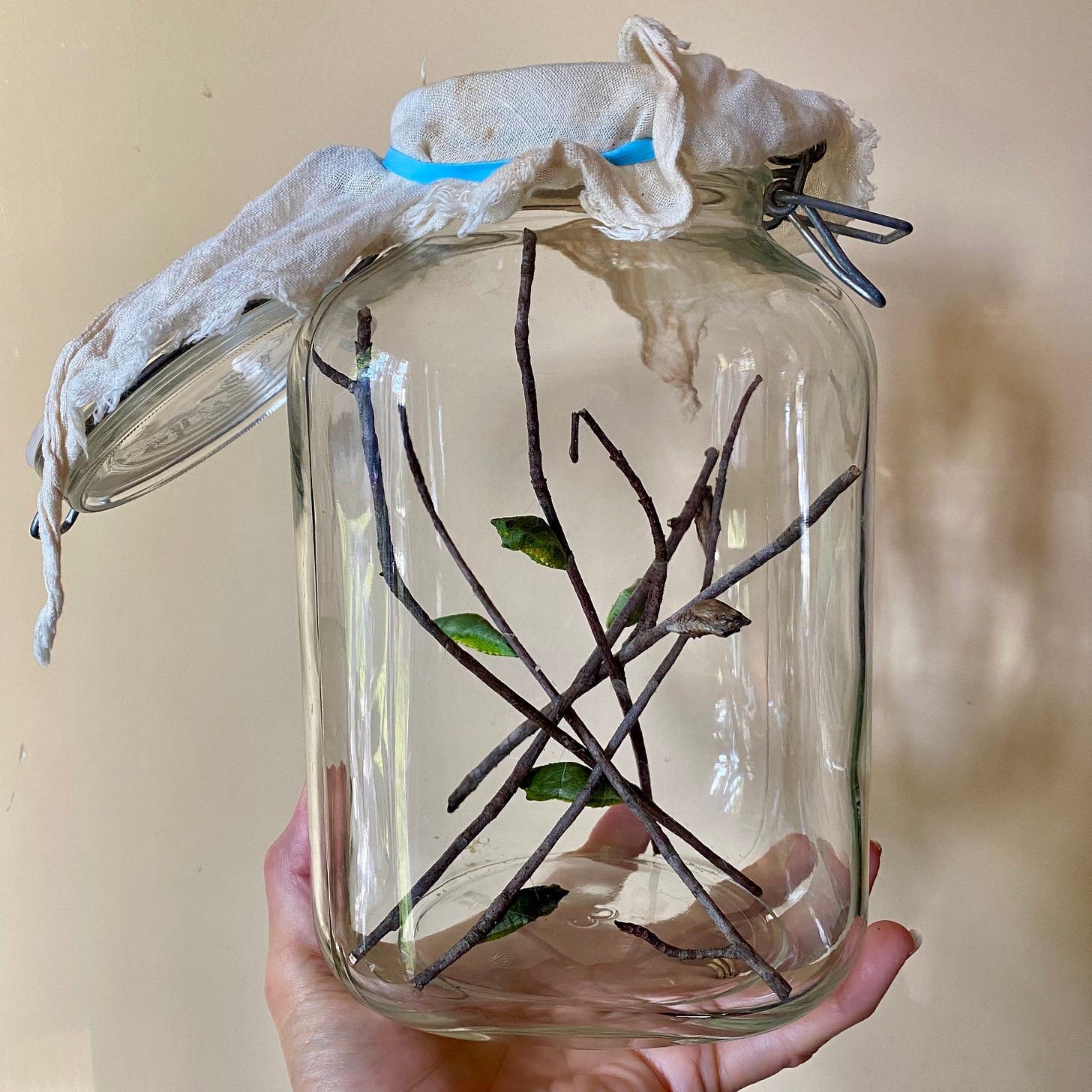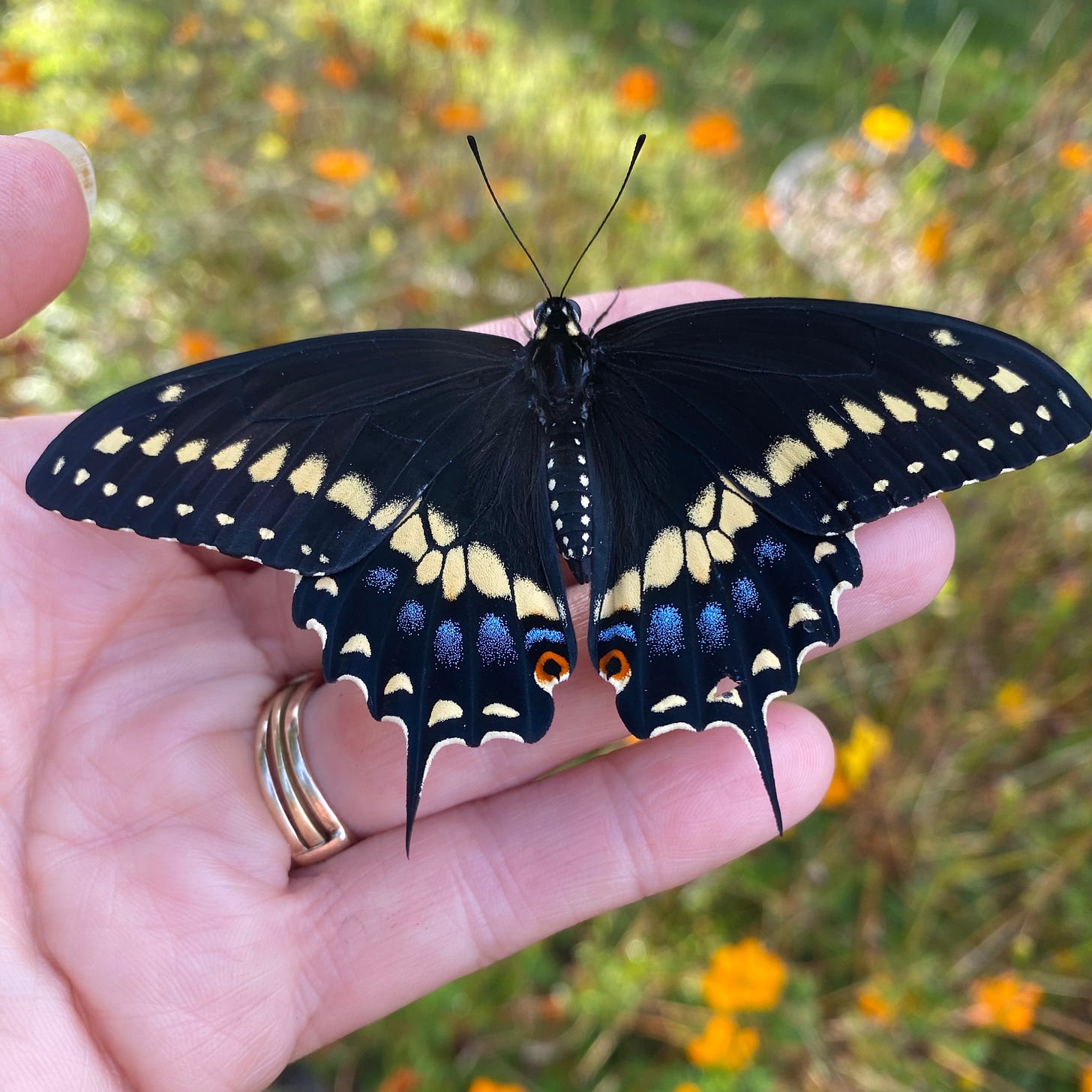The other half of tending
Field notes from a tired human
For those who prefer to listen, here’s an audio version, read by yours truly. ⬇️
As soon as the alarm goes off, I wonder if I might have time for a break later in the day. Not the most enthusiastic way to kick off a morning, though also far from the first time I’ve awakened with a similar wish. The difference now is that I might actually do it.
Not so long ago, I would have ignored that kind of internal knowing, muscling through the day, physical or mental exhaustion be damned, with an unseen nod of respect toward those who could make it happen. I would have assumed it meant that, unlike me, they had their acts together.
Such icons of organization, they deliberately stretch out on mid-century modern couches, in corner offices, with fantastic views, to reboot into better versions of their brilliant selves. They’re like my college roommate-now-sister-in-law. A role model I never managed to emulate, Carolyn studied for a few hours every day and, on the night before an exam, closed her textbook with a definitive thud, pushed her chair from the built-in desk, and was in bed before 10:00.
I, on the other hand, was up more than half the night in the bowels of the library, or some dank study lounge, cramming. Deliriously tired at three in the morning, I’d put my head on the desk, first asking someone nearby, another idiot also up at that hour, to wake me in 20 minutes. My internal clock meant I rarely needed the nudge, and those few minutes were enough to rejuvenate me.
These days, I find myself on the cusp of something different, a loosening of the collar, a willingness to unplug in the middle of the day, even if it still feels like a breach of character. The crush of everything wears me down, and I’ve started shifting the weight of it where I can.
I glance at the clock. 2:55 PM. A few minutes, I think. That’s all I need. Still in my usual chair, I lower my head onto folded arms. When I open my eyes again, my shoulders are stiff, my fingers tingling. It’s 3:13. I turn off the alarm I set, just in case I needed a back-up.
I feel better, like a well-balanced adult, for having given myself permission to close my eyes. And that, of course, makes me feel a little silly.
Outside, the potted sweet potatoes and new plumeria plants are sagging in the afternoon sun, so I step away from my desk. In these dry, serotinal days, I’m grateful for fewer mosquitoes and humidity levels that no longer make me feel poached. Also for water, and a long hose.
I lift the nozzle, and the arcing spray disrupts a black snake the length of my leg. It slips under the edge of the shed. I consider the fat lizard I startled in there a week ago.
A honeybee skates through spiky stamens of bright orange cosmos as a cicada thrashes its way out of the same bed in two turbulent efforts. Two fledgling goldfinches—that’s my best guess, anyway—teeter on the boundary of safety just a few feet away.
A mud dauber traces the margins of a deteriorated piece of plywood, while above, on the house’s cinderblock foundation, a five-lined skink mostly disappears into the siding, perhaps not realizing its tail is still exposed.
Watching it slide sideways, as if hanging from the edge of a cliff, I let myself settle back in malasana, the yogi squat I’m glad to still be able to do. I pay attention until a tiny striped head extends partly, then fully, followed in a flash by its full carnival of form and color.
Back at the threshold, I kick off my faithful gardening shoes. At 20 years old, they’re tired but still functional. An ancient pair of moss-green Crocs purchased long before the trend set in, the right shoe is splitting, the surfaces are flaking away. These will come to rest in a landfill someday, and that makes me feel a little guilty, even though they’ll have given all they have by then. Maybe, if the shoes or I are still kicking 20 years from now, the quest for engineered microbes capable of digesting this proprietary plastic will relieve me of responsibility.
In glass jars on a nearby table, eight butterfly chrysalises hang from small sticks. I gathered the caterpillars two weeks ago after spotting them on what little parsley I’d managed to grow. I knew it wouldn’t be enough for all of them. Asking around for someone with a more substantial food source, I finally located cutting celery at the community garden.
I hadn’t planned to raise these critters in captivity, but I’ve long since earned my stripes as a butterfly doula. The kids and I used to bring them in toward the end of every summer; it became a kind of ritual. A week or two of feeding, then they suspend themselves in minimalist hammocks and begin to transform. Another 10 days from now, if all goes well, I’ll be releasing black swallowtails into the sky.
Though they can live as long as 40 days, their average lifespan is 10 to 12. They spend much longer becoming butterflies than they do being them. What will they experience in their short lives? What kind of world will they encounter out there?
I think about my mother, who cried a lot in the days leading up to her 94th birthday. She was so tired of working so hard to be alive.
I think about the word rest, how it means more than the cessation of labor, more than sleeping or stopping—how it can also mean what remains after a separation.
To rest. The rest. Rest, I think, isn’t the opposite of work. It’s the other half of tending. I can be a person who rests without apology.
Overhead, the moon is rounding toward full. I find it now settled in westerly skies. It seems just yesterday that it hung low and yellow to the east. Tomorrow begins anew.
~Elizabeth
Thanks for reading. I’d love to hear your thoughts on this one. Are you a “day dreamer” or a “never napper?” What does rest mean to you? How do you balance the fatigue — the political, environmental, and personal — with tending to the parts of life that matter? And, do you have rituals or small acts of care that help you find your footing? Join the conversation over in the comments, where a wonderful community of thoughtful, kind folks keeps the dialogue going.
Every essay you read here is a labor of love — countless hours of thinking, writing, and revising — all with the hope that it might resonate with you. Knowing it lands, that it matters, even just a little, is everything.
If you enjoyed what you read, please like 💚, comment 💬, restack ♻️, or share with someone who might enjoy future posts. I know it seems like just one more button, and maybe that’s not your thing. But it’s the only way to get the little algorithms to tell others that this writing is worth their time. It’s how I reach a wider audience.
I appreciate you!
One-time contributions and paid subscriptions (just $5 per month) are never required but always a tangible way to support the work of this creative effort.
Take care of yourself — and I’ll see you next time here on Chicken Scratch.







Lovely images and a relaxing essay. Two things struck me. One is the importance of connection with the other species we live with, and their magical lives. The other is seeing rest as a companion of work. It’s not really “unplugging”, is it? As if we were malfunctioning toasters. Better to consider rest as zooming out (to take in one’s surroundings) or zooming in (deep breaths, feeling gratitude. maybe it’s form of prayer?)
This from said roomie-sister-in-law: yes, I was self-disciplined about my studying, but I ask you now…WHYWHYWHY DID WE DO IT? Where did it get us? I think I would be more rested caring for chrysalis and watching butterflies emerge than I ever am drawing furniture and worrying over tariffs and the economic implications in our industry. I’m coming back to be your roomie again, and I am bringing my olive green Crocs with me!! (And yes I nap whenever I can! But guilt follows me when I do-haven’t figured out how to escape the awkward feeling and just be OK with resting.)(Miss you guys-but we will see you soon I hope! And I am bringing my hat!!)